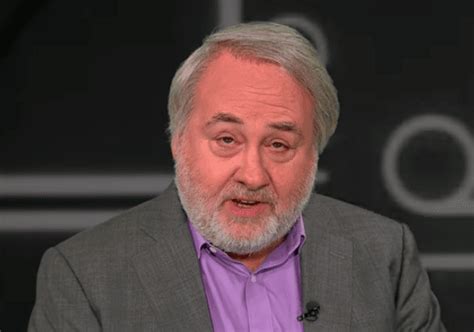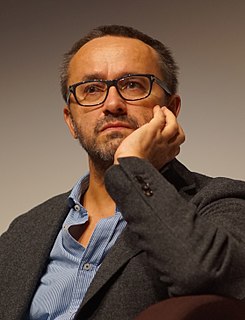A Quote by Jeffrey Pfeffer
All of Robert Caro's biographies are exceptional, in part because of Caro's fundamental ambivalence about power. He sees its necessity and use for getting things done, even as he is often repelled by watching power at close range. His masterpiece on Robert Moses, The Power Broker, describes the evolution of Moses from idealist to pragmatist as he became one of the most powerful figures in the 20th century.
Related Quotes
For anyone with the traits - of feeling himself victimized, of seeking to be the strongman who resolves everything, yet sees truth only through his own self and negates all other truth outside of it - is bound to become more malignant when he has power. Power then breeds an intensification of all this because the power can never be absolute power - to some extent it's stymied - but the isolation while in power becomes even more dangerous. Think of it as a vicious circle. The power intensifies these tendencies and the tendencies become more dangerous because of the power.
Our work has only begun. In our time we have an historic opportunity to shape a global balance of power that favors freedom and that will therefore deepen and extend the peace. And I use the word power broadly, because even more important than military and indeed economic power is the power of ideas, the power of compassion, and the power of hope.
The necessity for power is obvious, because life cannot be lived without order; but the allocation of power is arbitrary because all men are alike, or very nearly. Yet power must not seem to be arbitrarily allocated, because it will not then be recognized as power. Therefore prestige, which is illusion, is of the very essence of power.
Greatness by nature includes a power, but not a will to power. ... The great man, whether we comprehend him in the most intense activity of his work or in the restful equipoise of his forces , is powerful, involuntarily and composedly powerful, but he is not avid for power. What he is avid for is the realization of what he has in mind , the incarnation of the spirit .
We must each walk through life on our own, but we don't have to do it alone. God wants a powerful people. He gives His power to those who are faithful. We have a sacred obligation to seek after the power of God and then to use that power as He directs. And when we have the power of God with us, nothing is impossible.
When we obey the commandments of the Lord and serve His children unselfishly, the natural consequence is power from God—power to do more than we can do by ourselves. Our insights, our talents, our abilities are expanded because we receive strength and power from the Lord. His power is a fundamental component to establishing a home filled with peace.
Most Russians don't treat the government, or those in power, as something close to them. They don't believe that they, as ordinary people, are able to change the development of things. That's why they have a very specific ironic sentiment towards power and the figures that represent it. I wanted to translate this irony into the cinematic language.
We Indians do not teach that there is only one god. We know that everything has power, including the most inanimate, inconsequential things. Stones have power. A blade of grass has power. Trees and clouds and all our relatives in the insect and animal world have power. We believe we must respect that power by acknowledging it's presence. By honoring the power of the spirits in that way, it becomes our power as well. It protects us.































